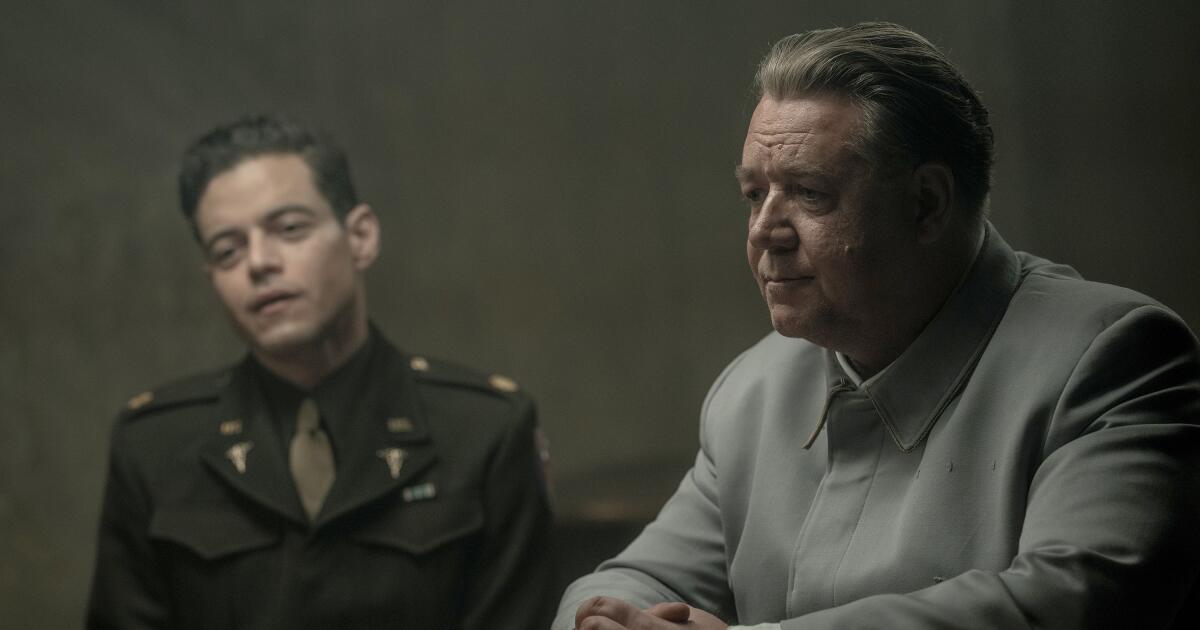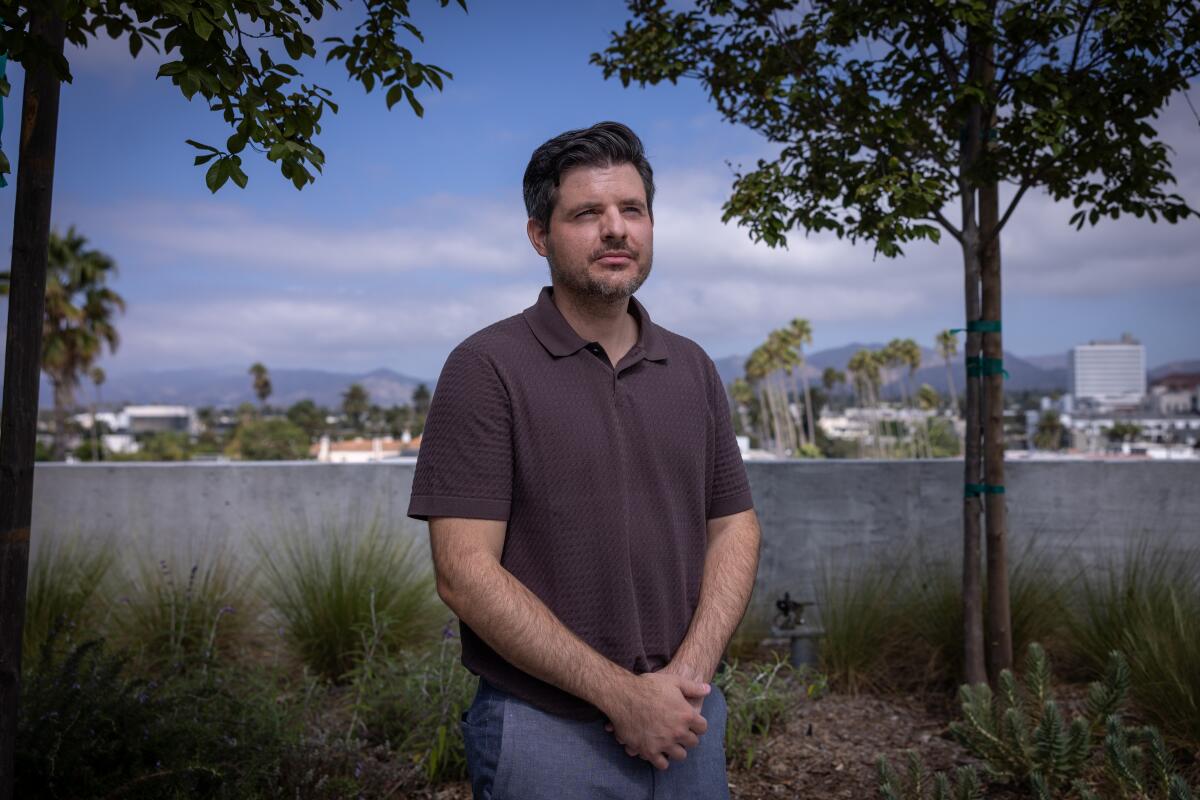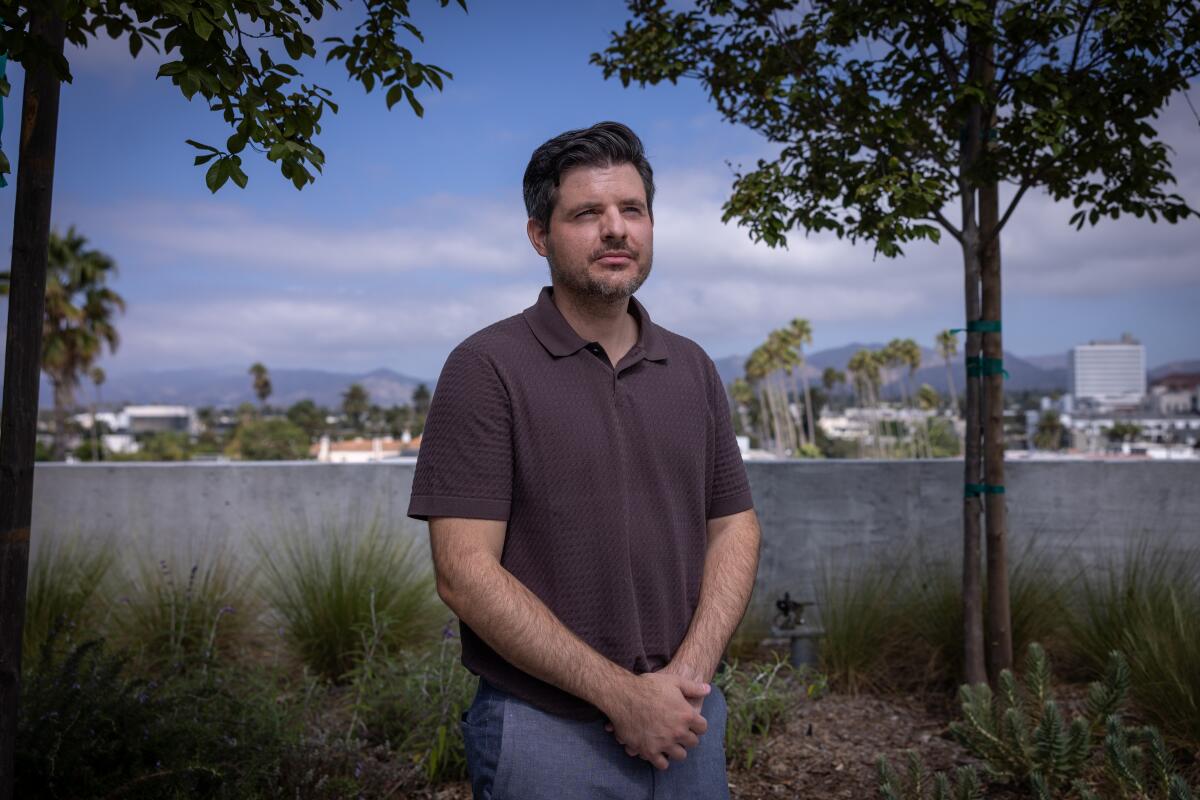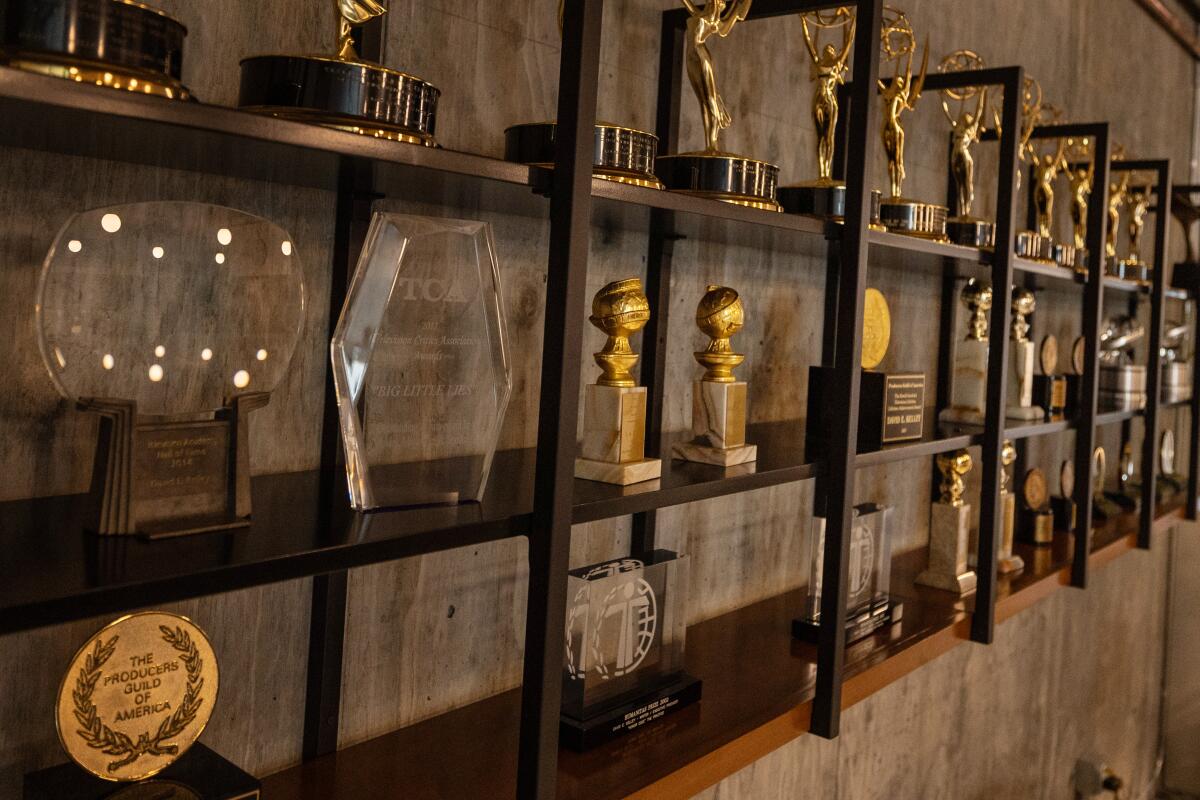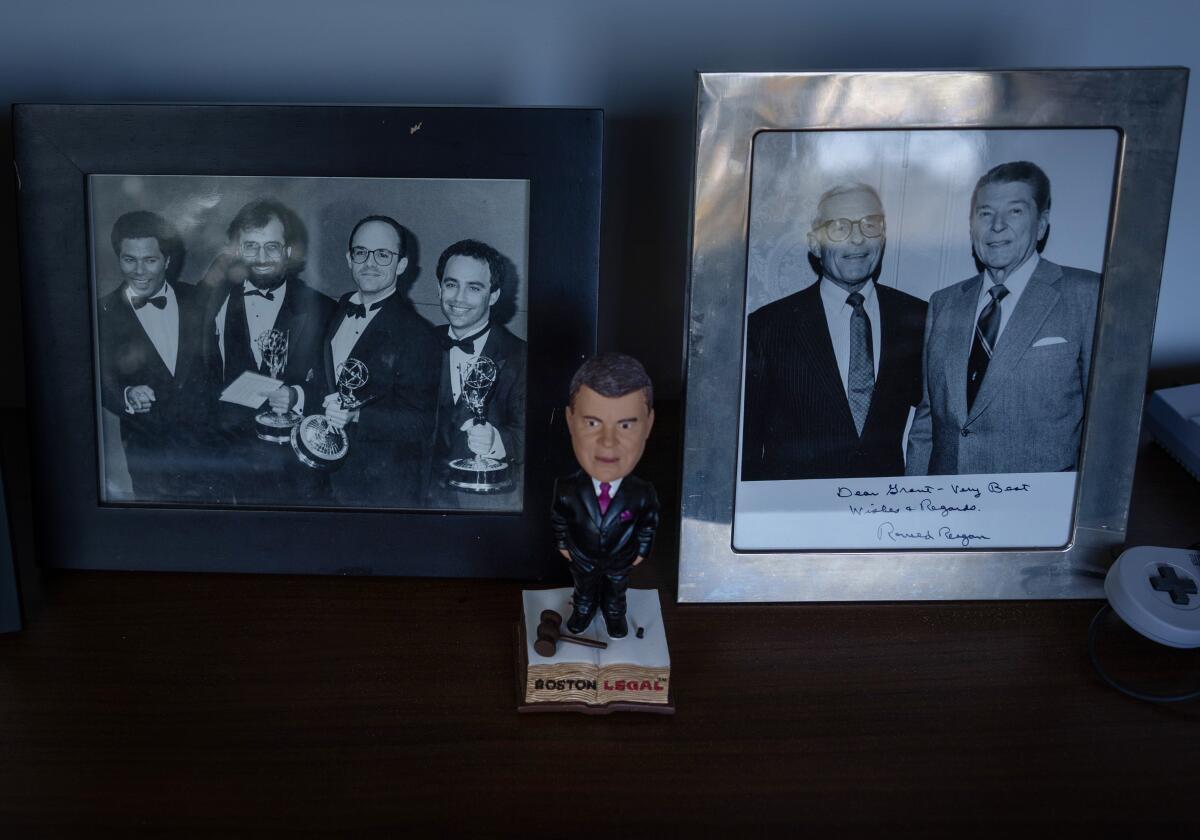‘Nuremberg’ review: Crowe and Malek in a tonally uncertain Nazi psychodrama
Movies that depict the history of war criminals on trial will almost always be worth making and watching. These films are edifying (and cathartic) in a way that could almost be considered a public servic and that’s what works best in James Vanderbilt’s “Nuremberg,” about the international tribunal that tried the Nazi high command in the immediate wake of World War II. It’s a drama that is well-intentioned and elucidating despite some missteps.
For his second directorial effort, Vanderbilt, a journeyman writer best known for his “Zodiac” screenplay for David Fincher, adapts “The Nazi and the Psychiatrist” by Jack El-Hai, about the curious clinical relationship between Dr. Douglas Kelley, an Army psychiatrist, and former German Reichsmarschall Hermann Göring during the lead-up to the Nuremberg trials.
The film is a two-hander shared by Oscar winners: a formidable Russell Crowe as Göring and a squirrely Rami Malek as Kelley. At the end of the war, Kelley is summoned to an ad-hoc Nazi prison in Luxembourg to evaluate the Nazi commandants. Immediately, he’s intrigued at the thought of sampling so many flavors of narcissism.
It becomes clear that the doctor has his own interests in mind with this unique task as well. At one point while recording notes, in a moment of particularly on-the-nose screenwriting, Kelley verbalizes “Someone could write a book” and off he dashes to the library with his German interpreter, a baby-faced U.S. Army officer named Howie (Leo Woodall), in tow. That book would eventually be published in 1947 as “22 Cells in Nuremberg,” a warning about the possibilities of Nazism in our own country, but no one wants to believe our neighbors can be Nazis until our neighbors are Nazis.
One of the lessons of the Nuremberg trials — and of “Nuremberg” the film — is that Nazis are people too, with the lesson being that human beings are indeed capable of such horrors (the film grinds to an appropriate halt in a crucial moment to simply let the characters and the audience take in devastating concentration camp footage). Human beings, not monsters, were the architects of the Final Solution.
But human beings can also fight against this if they choose to, and the rule of law can prevail if people make the choice to uphold it. The Nuremberg trials start because Justice Robert Jackson (Michael Shannon) doesn’t let anything so inconvenient as a logistical international legal nightmare stop him from doing what’s right.
Kelley’s motivations are less altruistic. He is fascinated by these men and their pathologies, particularly the disarming Göring, and in the name of science the doctor dives headlong into a deeper relationship with his patient than he should, eventually ferrying letters back and forth between Göring and his wife and daughter, still in hiding. He finds that Göring is just a man — a megalomaniacal, arrogant and manipulative man, but just a man. That makes the genocide that he helped to plan and execute that much harder to swallow.
Crowe has a planet-sized gravitational force on screen that he lends to the outsize Göring and Shannon possesses the same weight. A climactic scene between these two actors in which Jackson cross-examines Göring is a riveting piece of courtroom drama. Malek’s energy is unsettled, his character always unpredictable. He and Crowe are interesting but unbalanced together.
Vanderbilt strives to imbue “Nuremberg” with a retro appeal that sometimes feels misplaced. John Slattery, as the colonel in charge of the prison, throws some sauce on his snappy patter that harks back to old movies from the 1940s, but the film has been color-corrected into a dull, desaturated gray. It’s a stylistic choice to give the film the essence of a faded vintage photograph, but it’s also ugly as sin.
Vanderbilt struggles to find a tone and clutters the film with extra story lines to diminishing results. Howie’s personal history (based on a true story) is deeply affecting and Woodall sells it beautifully. But then there are the underwritten female characters: a saucy journalist (Lydia Peckham) who gets Kelley drunk to draw out his secrets for a scoop, and Justice Jackson’s legal clerk (Wrenn Schmidt) who clucks and tsks her way through the trial, serving only as the person to whom Jackson can articulate his thoughts. Their names are scarcely uttered during the film and their barely-there inclusion feels almost offensive.
So while the subject matter makes “Nuremberg” worth the watch, the film itself is a mixed bag, with some towering performances (Crowe and Shannon) and some poor ones. It manages to eke out its message in the eleventh hour, but it feels too little too late in our cultural moment, despite its evergreen importance. If the film is intended to be a canary in a coal mine, that bird has long since expired.
Walsh is a Tribune News Service film critic.
‘Nuremberg’
Rated: PG-13, for violent content involving the Holocaust, strong disturbing images, suicide, some language, smoking and brief drug content
Running time: 2 hours, 28 minutes
Playing: In wide release Friday, Nov. 7
